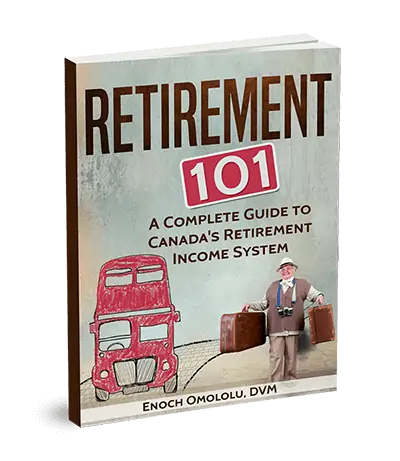When a CPP contributor dies, their surviving spouse and children may be eligible to collect the following benefits:
- CPP death benefit
- CPP survivor’s pension
- CPP children’s benefit
I discuss what they mean in more detail below. For background information about the Canada Pension Plan, read this article.
The CPP Death Benefit Explained
The CPP death benefit is a one-time lump-sum payment of $2,500 to the estate of a deceased CPP contributor.
The estate’s executor may apply for the funds (within 60 days), or it can also go to the surviving spouse or next of kin if there’s no estate.
For a deceased CPP contributor to qualify for the death benefit, they must have contributed to the Canada Pension Plan for the lesser of:
- 10 calendar years; or
- One-third of the calendar years in their contributory period.
How To Apply For The Death Benefit
Service Canada should be notified shortly after the death of a CPP contributor so that CPP payments can stop. Payments made to the deceased after the month of death must be repaid.
To apply for the death benefit, complete Form ISP1200 and mail it to Service Canada.
You will also need to provide a certified copy of a document showing proof of death, such as a death certificate, notarial copy of letters of probate, registration of death, or statement of a medical doctor, funeral director, or coroner.
Benefit payments may take up to 3 months to process. If you have questions, contact Service Canada at 1-800-277-9914.

What is the CPP Survivor’s Benefit?
The legal spouse or common-law partner of a deceased CPP contributor may be eligible for a survivor’s pension – also referred to as a widow’s (or widower’s) pension.
How much the survivor receives is dependent on:
- How much the deceased contributor paid into the plan, and for how long
- The age of the survivor
Eligible survivors who are 65 years or older and do not receive other CPP benefits are paid 60% of the deceased contributor’s retirement pension.
i.e. Survivor (65 years or older) = 60% of CPP contributor’s pension at 65 years.
For 2024, the maximum survivor’s pension for survivors who are 65 and over is 60% x $1,364.60 = $818.76.
Eligible survivors who are under 65 years and who are not receiving other CPP benefits are paid 37.5% of the deceased contributor’s pension plus a flat rate portion (i.e. $217.99 for 2023).
Using 2023 as an example, the maximum survivor’s benefit for survivors who are younger than 65 is: ($1,364.60 x 37.5%) + ($227.58 flat-rate component) = $739.31.
If the survivor receives other CPP benefits, e.g. CPP retirement pension or disability benefit, these benefits are combined into one monthly payment.
A surviving spouse eligible for the CPP disability and survivor’s pension can only receive a combined amount equal to the maximum disability pension.
Also, a survivor eligible for both the CPP retirement pension and survivor’s pension can only receive a combined benefit not exceeding the maximum retirement pension paid out for that year.
How To Apply for the CPP Survivor’s Benefit
To apply for the survivor’s pension, complete Form ISP1300 and mail it to Service Canada. You can start receiving the survivor’s pension the month after the contributor died.
Related: What happens to RRSP, RRIF, and TFSA after death?
CPP Children’s Benefit
Also referred to as orphan benefits, the CPP children’s benefit is a monthly payment made to the dependent children of a deceased or disabled CPP contributor.
For a child to be eligible, they must be the natural or adopted child of the deceased or be in their custody or control at the time of death.
Also, the child must be 18 years or younger or up to age 25 if they are attending school full-time.
The average children’s benefit paid out in 2024 is $281.72 ($294.12 maximum in 2024).
How To Apply for the CPP Children’s Benefit
For children under 18, you must complete Form ISP1300.
For children aged 18 to 25, Form ISP1400 and ISP1401 must be completed. Children in this age group must complete the declaration form (ISP 1401) every school year to show they are still enrolled in full-time education.
Are CPP Death and Survivor’s Benefits Taxable?
CPP benefits are generally considered to be taxable income.
CPP Death Benefit: If paid to the deceased’s estate, the benefit should be reported on the estate’s taxable income on line 11 of the trust’s T3 Return in the year it is received. The estate will pay tax on this amount as applicable.
If paid to a beneficiary (or someone else), they must report on line 13000 of their income tax and benefit return.
Taxes may not be due on the death benefit if the recipient is not a beneficiary of the estate and all the following apply:
- the recipient paid the deceased’s funeral expenses
- the amount of the death benefit is less than or equal to the funeral expenses
- the deceased has no heirs, and there is no other property in the estate
The Death Benefit is not reported as part of the final return of the deceased.
Survivor’s Pension and Children’s Benefits: The benefits are taxable in the hands of the survivor or child. If you reside in Canada, tax is not automatically withheld; however, you can voluntarily request that taxes are deducted through your My Service Canada Account or by completing Form ISP3520CPP.
If you reside abroad, a non-resident tax rate of 25% is withheld. If you live in a country with a tax treaty with Canada (e.g. the U.S.), you may be subject to a lower tax rate or exempted altogether.
Related: Should I Delay CPP?







I am not an accountant but the comment that the death benefit is income to the estate and will be taxed in the deceased final return doesn’t make sense. If it is income to the estate, it will be taxed in the first return of the estate. It is also received after death and would not be part of any income received by the deceased prior to death nor part of any deemed disposition triggered on death.
“CPP Death Benefit: The benefit is income to the estate and is taxable in the final tax return for the deceased.”
Are you sure about that? On the tax slip it specifically states “DO NOT REPORT THIS AMOUNT IF YOUR ARE FILING FOR A DECEASED PERSON”. My mom received the benefit when my dad pass away. She is supposed to file this on HER return, not my Dad’s final return.
@Tony: That section has been revised with updated information. Cheers.
Mother, passed away in 2018. I was sent the form to fill out for survivors benefits. I got it at the start of COVID
Now I am told forget it you can no longer apply.
That’s just not right. Especially, because of COVID.
is there any way to get a exemption to the sixty day rule?
@Geraldine: Unfortunately, I don’t know how the death benefit application works for executors following the sixty days.
This is all very confusing. My husband has about 5 months left to live due to cancer. I am trying to figure out how much I will receive in survivor benefits to sort out where I will live. I was told that I would get 60% of his CPP. However, reading this article I feel like I will not because I am eligible for the disability tax credit and I collect CPP and OAS for myself. Is this accurate?